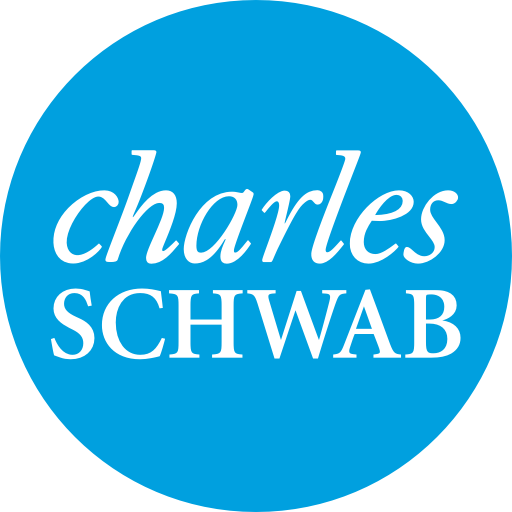Choosing Your First Online Brokerage Account: Top Options for New Investors
Ready to dip your toes into the world of investing but feeling a bit lost about where to start? You’re not alone! Choosing your first online brokerage account is a crucial first step. Think of it as selecting your mission control center for buying and selling investments like stocks and funds.
The good news is there are fantastic options designed specifically with beginners in mind. This guide will walk you through what to look for, explore some top contenders, and help you find the platform that best fits your launch into investing.
What’s an Online Brokerage Account, Anyway?
Before we explore options, let’s clarify. An online brokerage account is different from your regular bank savings or checking account. It’s an investment account that allows you to buy, sell, and hold various types of investments online. Common investments include:
- Stocks: Small ownership pieces (shares) in individual companies.
- ETFs (Exchange-Traded Funds): Baskets of investments (like stocks or bonds) that trade like single stocks. Great for diversification!
- Mutual Funds: Pooled money from many investors used to buy a portfolio of stocks, bonds, or other securities.
- Bonds: Essentially loans you make to a government or corporation, paying you interest over time.
Your brokerage account is your portal to accessing these investments via your computer or smartphone.

Key Factors for New Investors
When you’re just starting, certain features matter more than others. Keep these criteria in mind:
- Ease of Use: Is the website or mobile app intuitive and easy to navigate? You don’t want to feel overwhelmed right out of the gate.
- Costs: The great news is most major online brokers now offer $0 commissions for online trades of U.S. stocks and ETFs. However, watch out for other potential fees like account maintenance fees (less common now), transfer fees, or fees for specific mutual funds.
- Account Minimums: Many excellent brokers have $0 account minimums, meaning you can start investing with any amount.
- Educational Resources & Support: Does the broker offer helpful articles, videos, webinars, or courses for beginners? Is customer support readily available and helpful if you have questions?
- Fractional Shares: This feature allows you to buy a slice of a stock or ETF based on a dollar amount, rather than needing enough money for a full share. It’s fantastic for beginners investing smaller amounts or wanting to own pieces of high-priced stocks (like buying $20 worth of Amazon).
Exploring Beginner-Friendly Brokerage Options
Let’s look at some well-regarded online brokers often recommended for new investors. Remember, the “best” choice depends on your personal preferences and priorities.
Fidelity Investments

Fidelity is frequently cited as a top choice for beginners and experienced investors alike, offering a robust, well-rounded platform.
- Platform & Ease of Use: Their website and mobile app are comprehensive yet generally user-friendly, offering a good balance between powerful tools and approachability.
- Strengths for Beginners: Exceptional educational resources (articles, videos, webinars, classes), extensive research tools (that you can grow into), $0 account minimums, $0 commissions for stocks/ETFs, and support for fractional shares (called “Stocks by the Slice”). They also offer Fidelity ZERO expense ratio index mutual funds. Customer support is typically strong via phone, chat, and branches.
- Investment Options: Wide range of stocks, ETFs, mutual funds (including their own low-cost options), bonds, etc.
- Potential Drawbacks: The sheer volume of information and tools might feel slightly overwhelming initially compared to ultra-simple apps, but their learning center helps navigate this.
Charles Schwab

Schwab is another industry giant known for excellent customer service and a wide range of offerings, now integrating TD Ameritrade’s popular thinkorswim platform for more advanced users (though beginners can stick to the standard Schwab interface).
- Platform & Ease of Use: Offers clean web and mobile platforms suitable for beginners, with access to more powerful tools if needed later. The integration of TD Ameritrade resources adds depth.
- Strengths for Beginners: Strong reputation for customer support (phone, chat, branches), extensive educational content and research, $0 account minimums, $0 commissions for stocks/ETFs, and fractional shares (called “Schwab Stock Slices”).
- Investment Options: Comprehensive selection similar to Fidelity.
- Potential Drawbacks: Like Fidelity, the platform’s breadth means beginners might not use all features initially.
Vanguard

Vanguard is renowned for its low-cost index mutual funds and ETFs, making it a favorite among long-term, buy-and-hold investors.
- Platform & Ease of Use: Historically, Vanguard’s platform has been considered less intuitive or modern than competitors, particularly for active trading. However, it’s perfectly functional for its core purpose: long-term investing in Vanguard funds. Their mobile app has improved.
- Strengths for Beginners: Access to Vanguard’s highly regarded, low-cost funds is the main draw. They champion a long-term investing philosophy, which is excellent for beginners. $0 commissions for stocks/ETFs and no account minimums for brokerage accounts (though Vanguard mutual funds may have minimums, often waived if you sign up for electronic statements). Fractional shares are available for Vanguard ETFs.
- Investment Options: While you can buy non-Vanguard investments, the platform is optimized for Vanguard’s own products.
- Potential Drawbacks: The platform isn’t typically favored by those looking to trade frequently. Educational resources are good but perhaps less extensive or interactive than Fidelity/Schwab.
E*TRADE

Acquired by Morgan Stanley, E*TRADE offers strong platforms, particularly for mobile users.
- Platform & Ease of Use: Offers two mobile apps: the standard ETRADE app (user-friendly for beginners) and Power ETRADE (more advanced charting and trading tools). The web platform is also robust.
- Strengths for Beginners: Good educational resources, $0 account minimums, $0 commissions for stocks/ETFs. The tiered mobile app approach allows beginners to start simple and potentially graduate to more advanced tools later.
- Investment Options: Wide range of investment choices.
- Potential Drawbacks: Does not currently offer fractional shares of stocks (only ETFs via automatic investing). Customer service reviews are sometimes mixed compared to Schwab/Fidelity.
Robinhood

Robinhood gained popularity with its commission-free model and simple, mobile-first interface, attracting many first-time investors.
- Platform & Ease of Use: Extremely simple and intuitive mobile app, designed for quick trading. Web platform is also minimalist.
- Strengths for Beginners: Very easy to get started, $0 account minimum, $0 commissions for stocks/ETFs, offers fractional shares, also provides access to cryptocurrency trading (which carries additional risks).
- Investment Options: Stocks, ETFs, options, crypto. Does not offer mutual funds or bonds.
- Potential Drawbacks: Educational resources and research tools are significantly less comprehensive than traditional brokers. Customer support has faced criticism, often being primarily email/app-based. The platform’s design has sometimes been criticized for potentially encouraging frequent trading rather than long-term investing.
Webull

Similar to Robinhood in targeting mobile-first, commission-free trading, but generally offers more charting tools and data.
- Platform & Ease of Use: Mobile-centric platform with more technical analysis tools than Robinhood, which might appeal to slightly more active beginners. Can feel cluttered to some.
- Strengths for Beginners: $0 account minimum, $0 commissions for stocks/ETFs, offers fractional shares, paper trading (practice) feature, access to crypto. Extended trading hours are often highlighted.
- Investment Options: Stocks, ETFs, options, crypto. No mutual funds or bonds.
- Potential Drawbacks: Like Robinhood, educational resources and customer support may lag behind full-service brokers. The focus on technical tools might encourage short-term trading.
SoFi Invest

Part of the larger SoFi financial ecosystem (loans, banking, etc.), SoFi Invest offers a simple investing platform.
- Platform & Ease of Use: Clean, straightforward interface integrated within the main SoFi app. Designed for ease of use.
- Strengths for Beginners: $0 account minimum, $0 commissions for stocks/ETFs (via “Active Investing”), offers fractional shares (“Stock Bits”), access to crypto, integration with other SoFi financial products can be convenient. Offers automated investing (robo-advisor) as well.
- Investment Options: Stocks, ETFs, crypto. Limited options for mutual funds or bonds.
- Potential Drawbacks: Research tools and educational content are less extensive than larger brokers. Primarily app-focused.
Opening Your Account: What to Expect
Once you choose a broker, opening an account is usually straightforward:
- Application: Fill out an online application with personal details (name, address, SSN, employment info, basic financial info).
- Verification: The broker will verify your identity, often automatically.
- Funding: Link a bank account to transfer funds electronically (ACH is common and usually free). You can also fund via wire transfer (may have fees) or check deposit.
- Choose Account Type: You’ll typically choose between a standard taxable brokerage account or a retirement account like a Traditional IRA or Roth IRA. New investors often start with a taxable account for flexibility or an IRA for tax advantages if focusing on retirement.
Beginner-Friendly Brokers at a Glance
| Broker | Best For | $0 Stock/ETF Trades? | Account Minimum | Fractional Shares? | Key Beginner Strength |
| Fidelity | All-Around Excellence, Education | Yes | $0 | Yes | Top-tier education & resources |
| Schwab | Strong Support, All-Around | Yes | $0 | Yes | Excellent customer service & research |
| Vanguard | Long-Term Investing in Vanguard Funds | Yes | $0 | Yes (Vanguard ETFs) | Access to low-cost Vanguard ecosystem |
| E*TRADE | Solid Platform, Mobile Options | Yes | $0 | No (Stocks) | Tiered mobile apps (simple -> advanced) |
| Robinhood | Mobile Simplicity, Fractional & Crypto Access | Yes | $0 | Yes | Extremely easy-to-use mobile app |
| Webull | Mobile Trading with More Tools, Crypto | Yes | $0 | Yes | More charting/data than Robinhood |
| SoFi Invest | Simple Investing, SoFi Ecosystem Integration | Yes | $0 | Yes | Easy interface, integrated banking/loans |
Important Note: This table summarizes information based on publicly available data as of early 2025 and is subject to change. Features like fractional shares or specific fees can evolve. This is not an exhaustive analysis or endorsement. Always conduct your own thorough due diligence and verify all details directly with the brokerage before opening an account.
Key Takeaways
- Choosing your first online broker is an important step into investing.
- Focus on ease of use, low costs ($0 stock/ETF commissions are standard), low/no minimums, and good educational resources/support.
- Brokers like Fidelity and Schwab offer strong all-around packages with excellent education.
- Vanguard is ideal for low-cost, long-term investing, especially in its own funds.
- Mobile-first apps like Robinhood, Webull, and SoFi offer simplicity and fractional shares but may have less comprehensive resources.
- Fractional shares are a great feature for beginners, allowing investment in expensive stocks with small amounts.
Conclusion: Taking the First Step
Selecting an online brokerage account doesn’t have to be intimidating. The “best” choice is the one that feels comfortable for you, encourages you to learn, and makes it easy to start building your investment portfolio. Most reputable brokers offer robust platforms with $0 commissions for basic trades. Focus on finding an interface you like and resources that support your learning style. Remember, successful investing for beginners is usually about consistent contributions and long-term growth, not frequent trading. Choose a broker, start small, stay curious, and enjoy the journey!
Glossary
- Brokerage Account: An investment account that allows you to buy and sell securities like stocks, bonds, ETFs, and mutual funds.
- Stock: A type of security that signifies ownership in a corporation and represents a claim on part of the corporation’s assets and earnings.
- ETF (Exchange-Traded Fund): A type of investment fund that holds assets such as stocks, commodities, or bonds, and trades on stock exchanges like a stock.
- Mutual Fund: An investment vehicle made up of a pool of money collected from many investors to invest in securities like stocks, bonds, money market instruments, and other assets.
- Commission: A fee paid to a broker for executing a trade (buying or selling securities). Now typically $0 for online stock/ETF trades at major US brokers.
- Fractional Shares: Portions or slices of whole shares of stock or ETFs, allowing investment based on dollar amounts rather than share price.
- Bid-Ask Spread: The difference between the highest price a buyer is willing to pay (bid) and the lowest price a seller is willing to accept (ask) for an asset. Represents an implicit trading cost.
